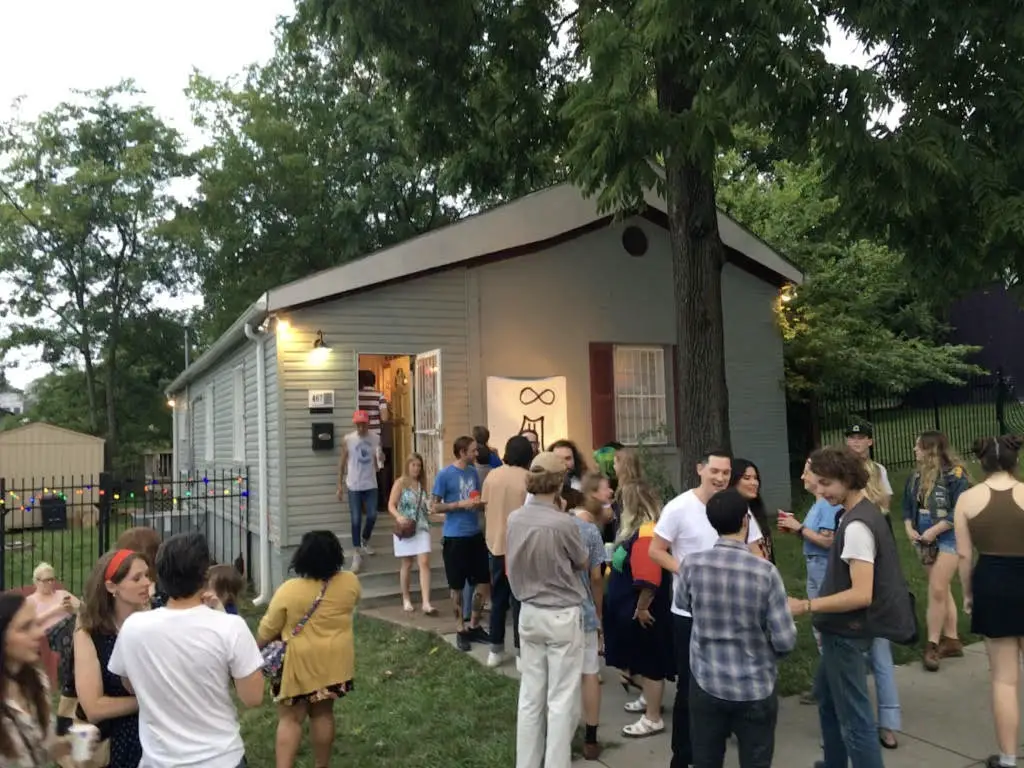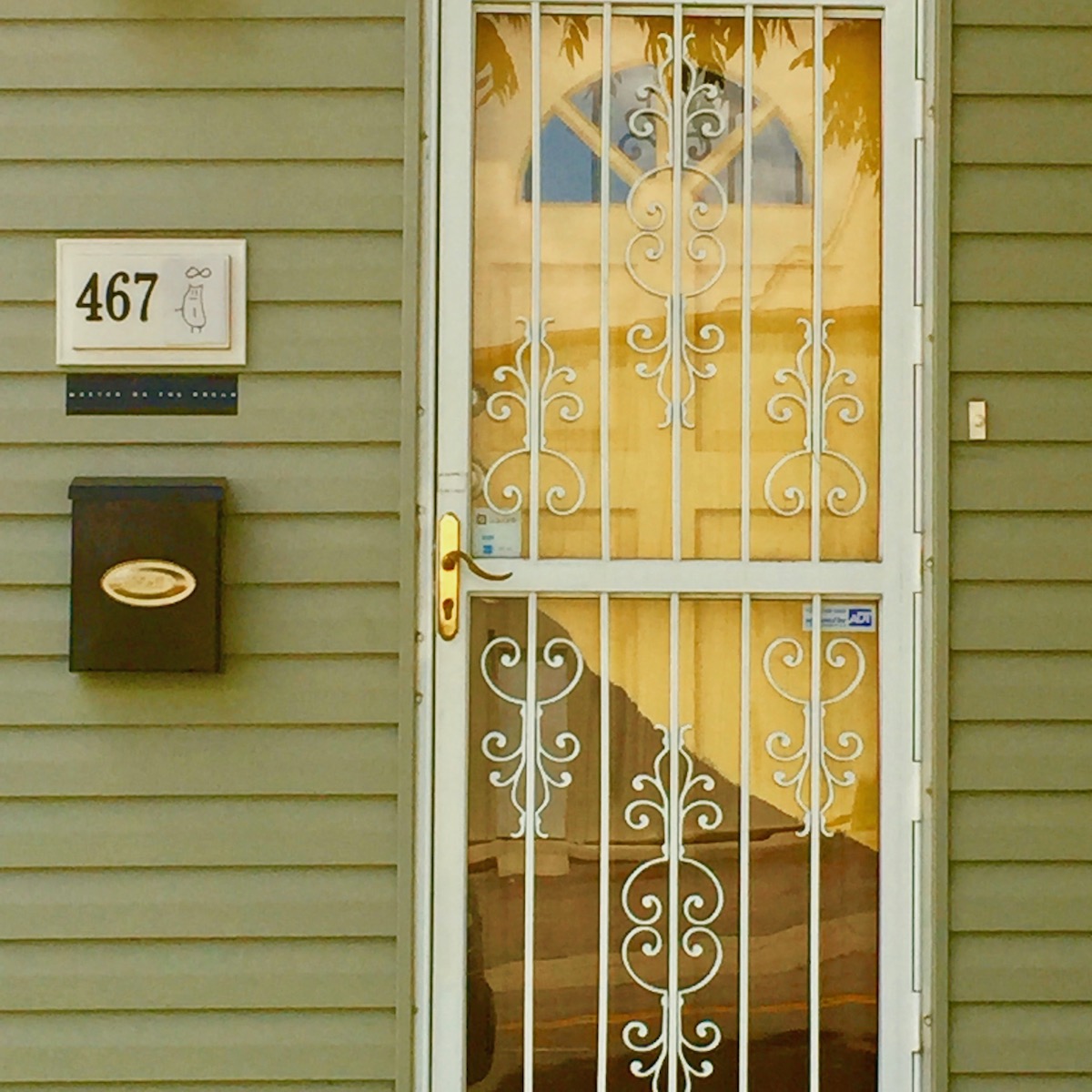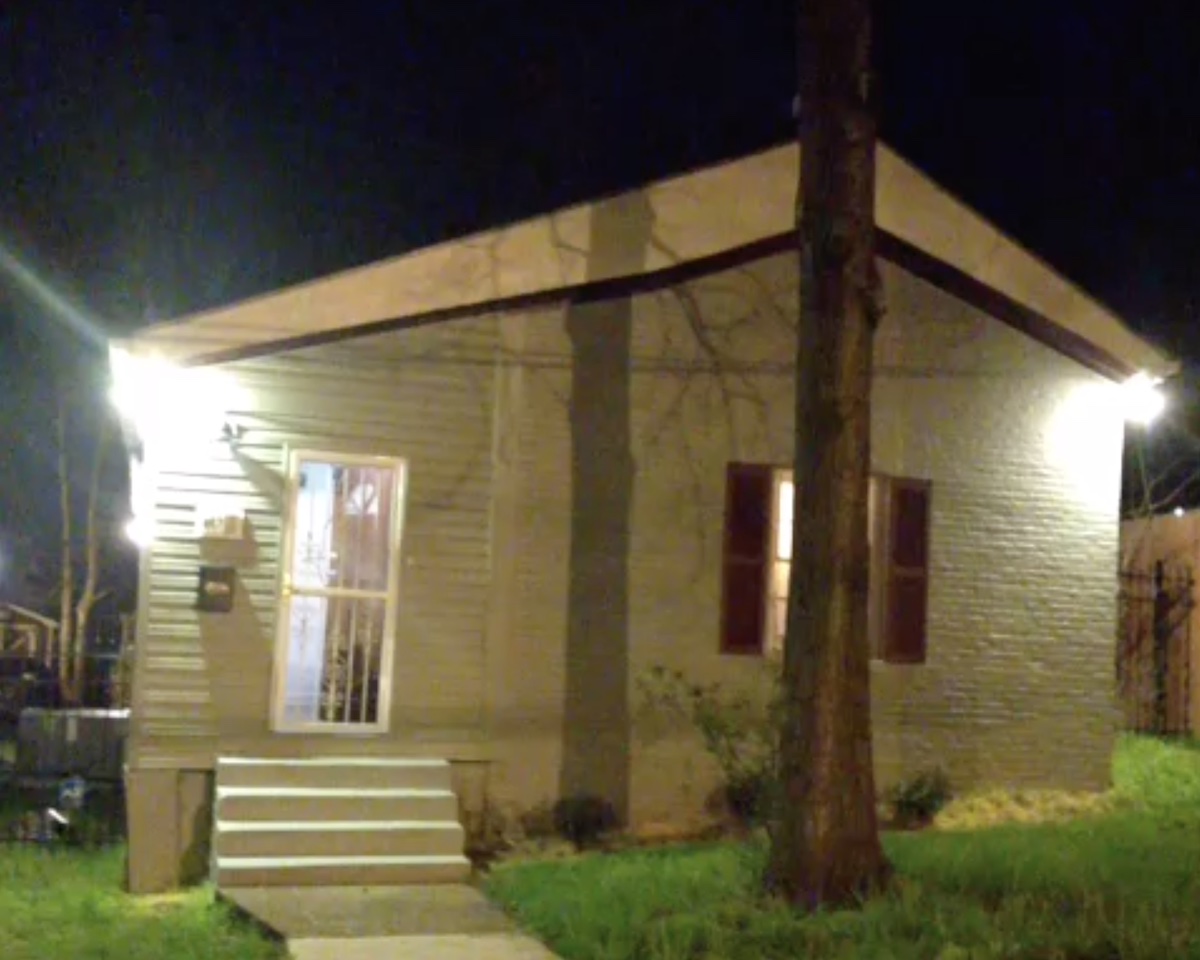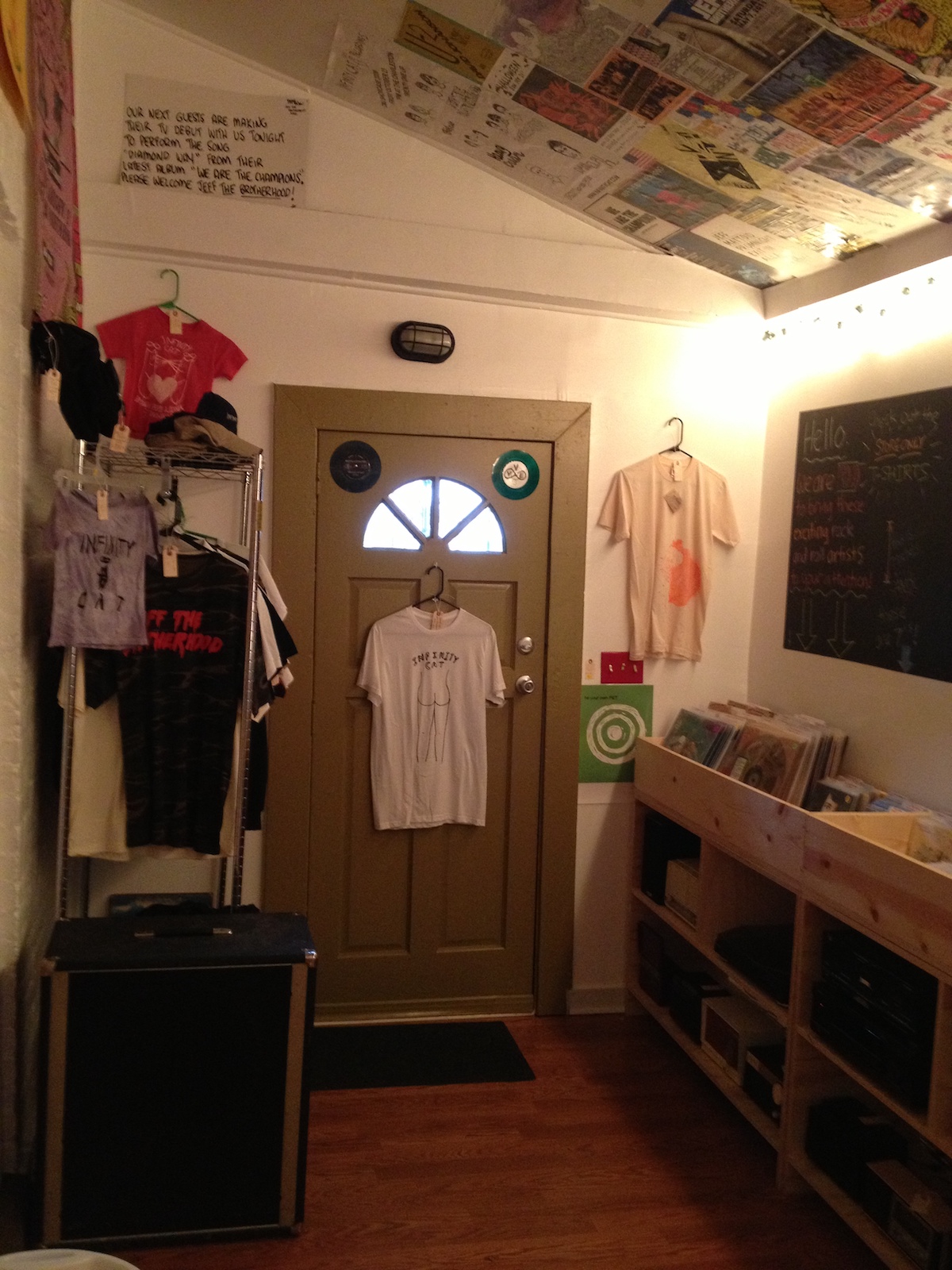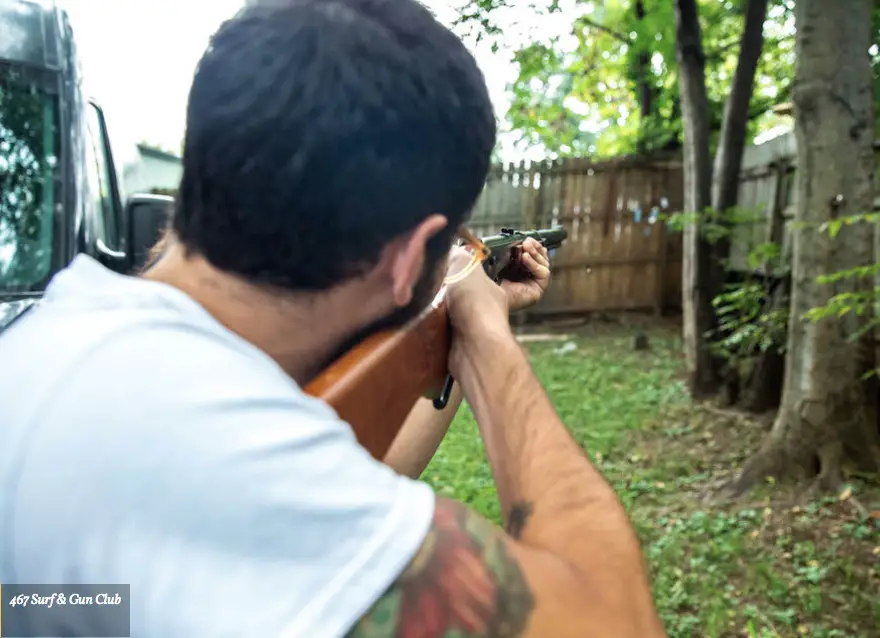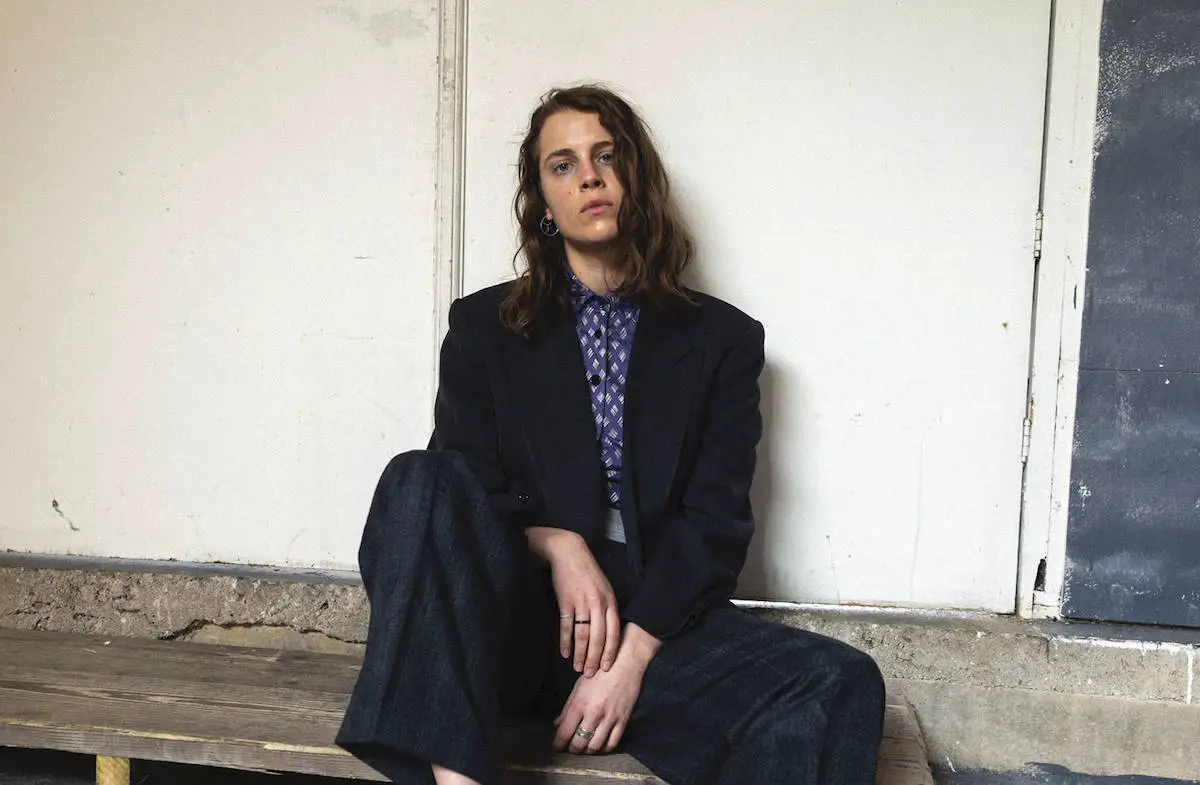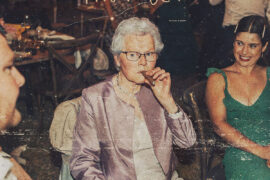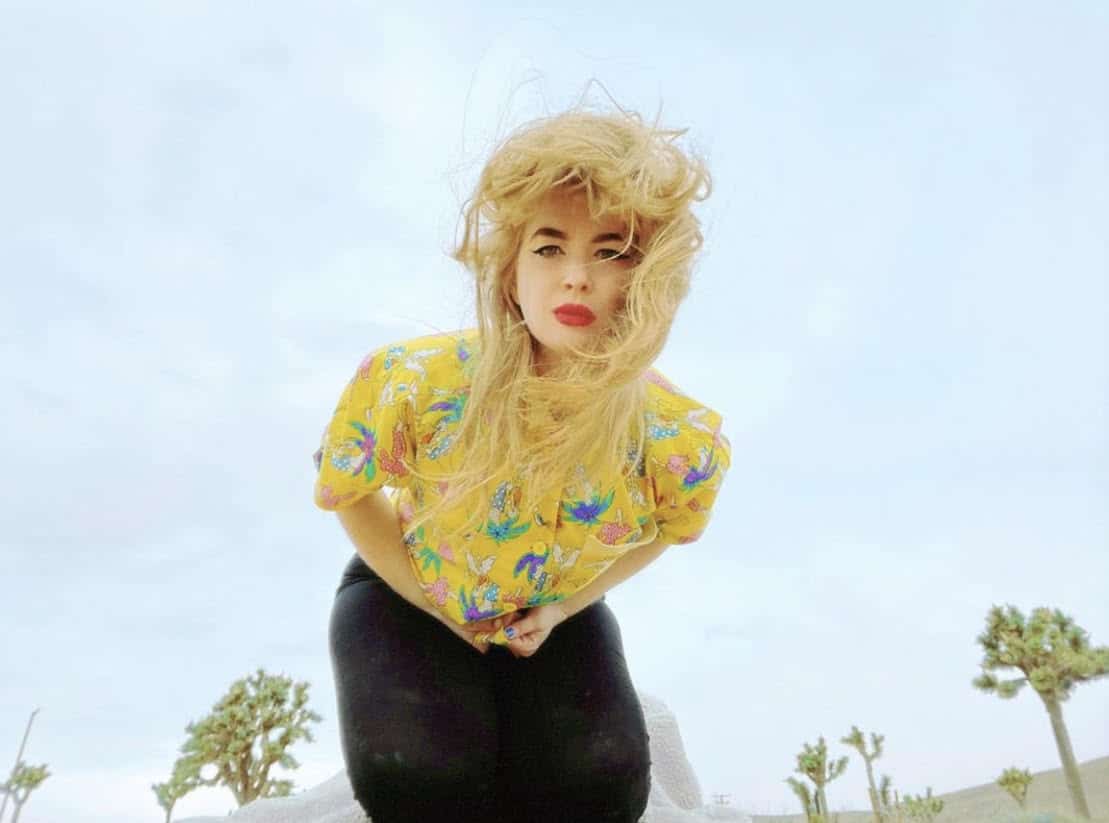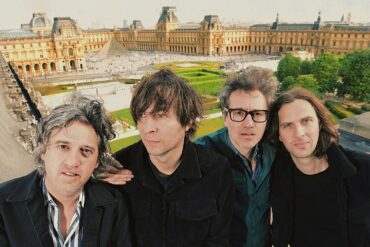Songwriter Robert Ellis Orrall shares his ode to Infinity Cat Studios, a place of joy and the exuberance of youth, in his album ‘467 Surf and Gun Club.’
‘467 Surf and Gun Club’ – Robert Ellis Orrall
I was just being lifted up by the optimism and the lack of cynicism that existed with everybody and, as I got old, it really kept me feeling relevant and excited about the future.
There’s something totally unique about the community of musicians and creators that exists in Nashville. Having been dubbed “music city,” music is ingrained within its livelihood. And while the larger culture of tourism and branding references the likes of Tim McGraw, Dolly Parton, Luke Bryan, embracing the city’s country music roots, the true culture of music city is made up of a diverse blend of styles and attitudes. It’s a larger culture made up of microcosmic communities of musicians and music lovers. Robert Ellis Orrall’s 467 Surf and Gun Club is a love letter to one of those communities, one which he created.
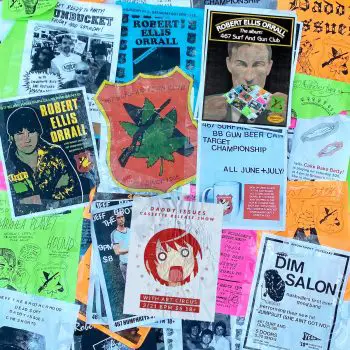
From 1980-84, Bob began recording for RCA Records from his home in Boston. “I said, what’s my future look like, so I started bearing down on what I originally had set out to do, which is write songs. Period, and by ‘87/’88 I was making regular trips to Nashville with a bunch of hooks in my pocket” he mentioned when discussing how he made his way into the music scene. In Boston, Bob networked like any artist does- in the bars and watering holes where other like-minded artists collected. “I’d sing like a chorus and go ‘hey what do you think of this?’ That’s how I started writing with people.”
By 1990, Bob made the move to Music City with his family, including his two sons Jake and Jamin, who would later form the group JEFF The Brotherhood. Once in Nashville, Bob continued writing. “It was definitely a job, but a job I loved…I was writing five days a week, sometimes two or three songs a day.” Towards the end of the decade, Jake and Jamin had developed their own love for songwriting and performance and came to their dad with a proposal: A new record label. Bob agreed, without hesitation, but had one caveat.
“I told them that we’re starting from zero and we’re gonna build this from the ground up.” And that they did, creating what would become Infinity Cat (iCat) Studios, lovingly nicknamed 467 Surf and Gun Club.
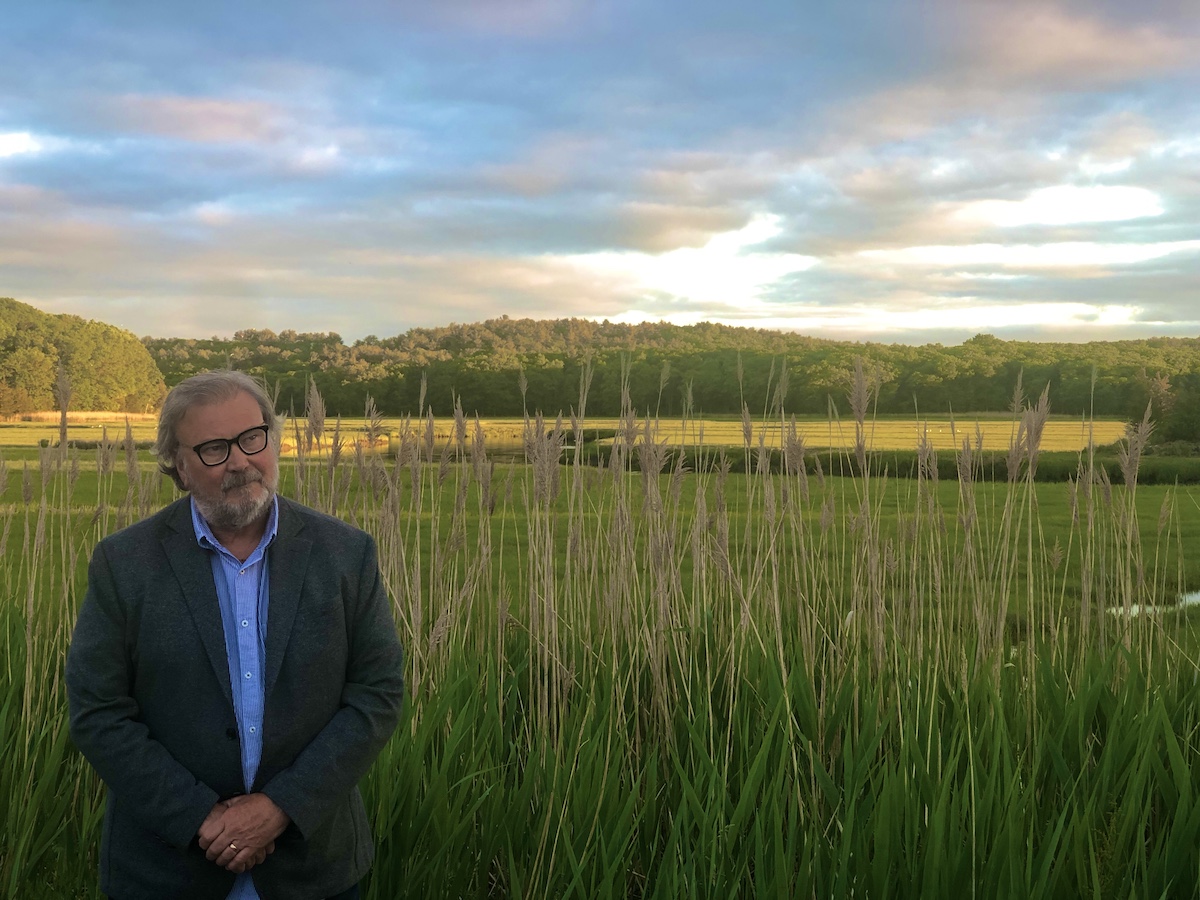
The space held tours to inspire Nasvhille’s youth to continue creating, famously using some of Taylor Swift’s OG demos to instruct and intrigue. Though Infinity Cat no longer stands as overpopulation and gentrification rampage the Nashville that locals knew just ten years ago, 467 Surf and Gun Club stands as a time capsule of a microcosm of a city known for music. It’s intimate and emotional and feels like a diary entry from the happiest time in a person’s life.
Bob, who suffers from an auto-immune disease, decided to release these songs after years of their existence when Covid began to ramp up. He said, “when Covid started getting really bad like a year ago, I said to myself that if I die before this comes out, I mean I can’t just let this sit on my hard drive!” He gathered a group of musicians and engineers, many of whom were longtime friends and coworkers, recorded, edited, and released this body of work to the world.
“Morning Song” may be the best illustration of the glory of the 467 Surf and Gun Club, written as Bob approached the place early one morning. “I was literally walking up the back steps of infinity cat, and the sun was hitting me, it’d just come up over the horizon. I’d always get there really early cause I couldn’t wait to get there. I was unlocking the back door and the song started playing in my mind and I sat down and wrote it. If you listen to the lyrics of that song that’s exactly how I felt, how grateful I was and so I wanted to just put it down in the moment.” The song opens with a strong chord on an organ before melting into a bouncy guitar in a major key, bringing a sense of serene joy to the opening of the song. In the song, Bob notes that this place is where he’s “meant to be.” Bob described iCat studios as a haven for musicians, with spots to drink, shoot BB guns, watch old surf movies, and bond with other local artists as well as a place to create music, and the joy of the place is truly encapsulated in this song that feels like a sonic sunrise. “That’s where, I think in my whole career, where my happiest days, day in and day out, were spent because it was so full of energy and youth and life and optimism and excitement. All the bands would come and hang out, we had BB guns on the wall and a shooting range in the backyard. A lot of beer was consumed, a lot of music was played, it was just a great place. I used to think of it as this sort of dive bar [the back part of Infinity Cat], so we named it 467 Surf and Gun Club.”
The album is taken from the perspective of a bartender, surveying the joyous group which collected in his space. Bob compared being a songwriter to being a bartender, as the two roles have more in common than some might believe. “I would meet people, sometimes only once or twice, I’d know their name but I really wouldn’t know who they were except for what they told me about their lives. Sometimes those relationships went on for years, like a regular, and sometimes they were just in for a couple of days and then they were gone.”
Having written with four to five hundred people over the years, it’s easy to compare the rotational nature of the two gigs. Just like how a bartender doesn’t curate their drinks to match their personal taste, “My job was to listen to somebody and talk to them and get to know what’s going on in their life and the ups and downs and then try to help them write what they wanted to say, it wasn’t about me anymore it was about them.”
Now, with an album that is in fact about him, Bob uses this parallel in his experience to characterize his own role in 467 Surf and Gun. In songs like “Life Behind Bars” or “Wish About Her,” this characterization is quite literal. “Wish About Her” describes the aforementioned experience, meeting someone briefly, learning about them and using your imagination to fill the gaps before they disappear forever. “Life Behind Bars” has a cinematic, theatrical tone that truly creates the illusion of the bartender. Yet through this characterization, Bob maintains closeness, never letting what autofiction he uses to diverge into untruth.
Though the place itself was one which oozed fun, like a clubhouse found in the sketchbook of an imaginative child, it was the people who made up the soul of the space.
“Infinity Cat was a great experience for me, because I was getting older and I was a bit beaten down by the music business. We started a record label of people with hope and optimism and everything ahead of them.”
At its root, iCat was a familial space, a place for father and sons to innovate their shared love of music. As it grew, it created a new sense of family, a place where strangers felt like kin. And though the space was one filled to the brim with talent, it wasn’t really the work of others that influenced Bob’s own work.
“The community I was really cultivating with my songs Jake and Jamon at Infinity Cat weren’t really influencing my music so much as I was just being lifted up by the optimism and the lack of cynicism that existed with everybody and, as I got old, it really kept me feeling relevant and excited about the future.”
— —
:: stream/purchase 467 Surf and Gun Club here ::
— — — —
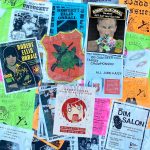
Connect to Robert Ellis Orrall on
Facebook, Twitter, Instagram
Discover new music on Atwood Magazine
? © Ricardo Fernandez
:: Stream Robert Ellis Orrall ::


